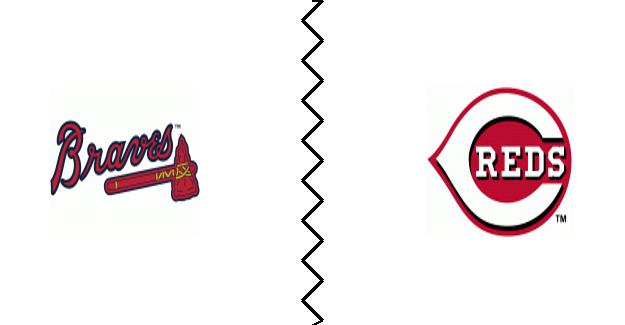2025-08-01 Braves at Reds Matchup Preview

The Cincinnati Reds aim to leverage their hitting prowess against Bryce Elder as they host the Atlanta Braves in a compelling interleague afternoon contest.


Starting Pitching Matchup
Bryce Elder takes the mound for the Atlanta Braves, bringing a repertoire designed to induce soft contact and limit damage. Elder will aim to exploit the Cincinnati Reds' hitters' weaknesses, particularly those who struggle with pitches that break late in the zone. His success hinges on maintaining command of his secondary offerings and preventing the Reds from stringing together multiple high-quality at-bats. For the Cincinnati Reds, Brady Singer will be tasked with keeping the Braves' potent lineup in check. Singer relies on his ability to mix speeds and locations, challenging hitters to stay balanced and avoid predictable patterns. Singer's effectiveness hinges on preventing the Braves from getting comfortable at the plate and dictating the tempo of the game.
Braves Hitting Analysis
The Atlanta Braves' offense is constructed around a core of experienced hitters who excel at driving the ball to all fields. Their team's overall performance demonstrates a disciplined approach at the plate. The Braves’ hitters demonstrate a propensity to make contact with pitches in the strike zone. They will test Singer's ability to command the inner half of the plate, looking for opportunities to pull pitches for extra-base hits. The Braves lineup is comprised of players who are disciplined and can get on base and create situations for the power bats in the lineup to drive them in.
Reds Hitting Analysis
The Cincinnati Reds' offensive approach is centered on generating power from multiple spots in the lineup. The team's collective Weighted On-Base Average highlights their capability to reach base consistently, creating opportunities for run-scoring. Their collective Isolated Power indicates a lineup geared towards extra-base hits. The Reds’ hitters have shown that they struggle with breaking balls, which will play into Elder's approach to the game. The team also benefits from a lineup that makes solid contact. They will focus on laying off pitches outside the strike zone and capitalizing on mistakes from Elder.
Bullpen Outlook
Both teams feature bullpens capable of navigating high-leverage situations. The Braves’ relief corps relies on a mix of power arms and experienced veterans. They will be tasked with preserving any lead that Elder can provide, aiming to limit the Reds' opportunities to mount late-inning comebacks. The Cincinnati Reds’ bullpen features a blend of young, promising arms and seasoned relievers. Their ability to shorten the game and protect leads will be crucial, particularly in a closely contested matchup.
Defensive Considerations
The Atlanta Braves prioritize a sound defensive approach, emphasizing minimizing errors and maximizing range in the outfield. The Cincinnati Reds emphasize agility and athleticism in their infield defense. Both teams understand the importance of converting batted balls into outs and preventing free bases.
Intangibles
The afternoon start time could favor the Reds, as their hitters may adjust more quickly to the daylight conditions. The Braves will need to demonstrate resilience on the road. The team that executes better in situational baseball and demonstrates a greater sense of urgency is likely to gain an edge.
Prediction
This game shapes up as a tightly contested battle between two teams with distinct strengths. The Reds’ offensive firepower, combined with Singer’s ability to navigate the Braves’ lineup, gives them a slight advantage at home. Elder will keep the Braves close, but the Reds' ability to manufacture runs and capitalize on opportunities will be the difference.
Braves 3 Reds 5